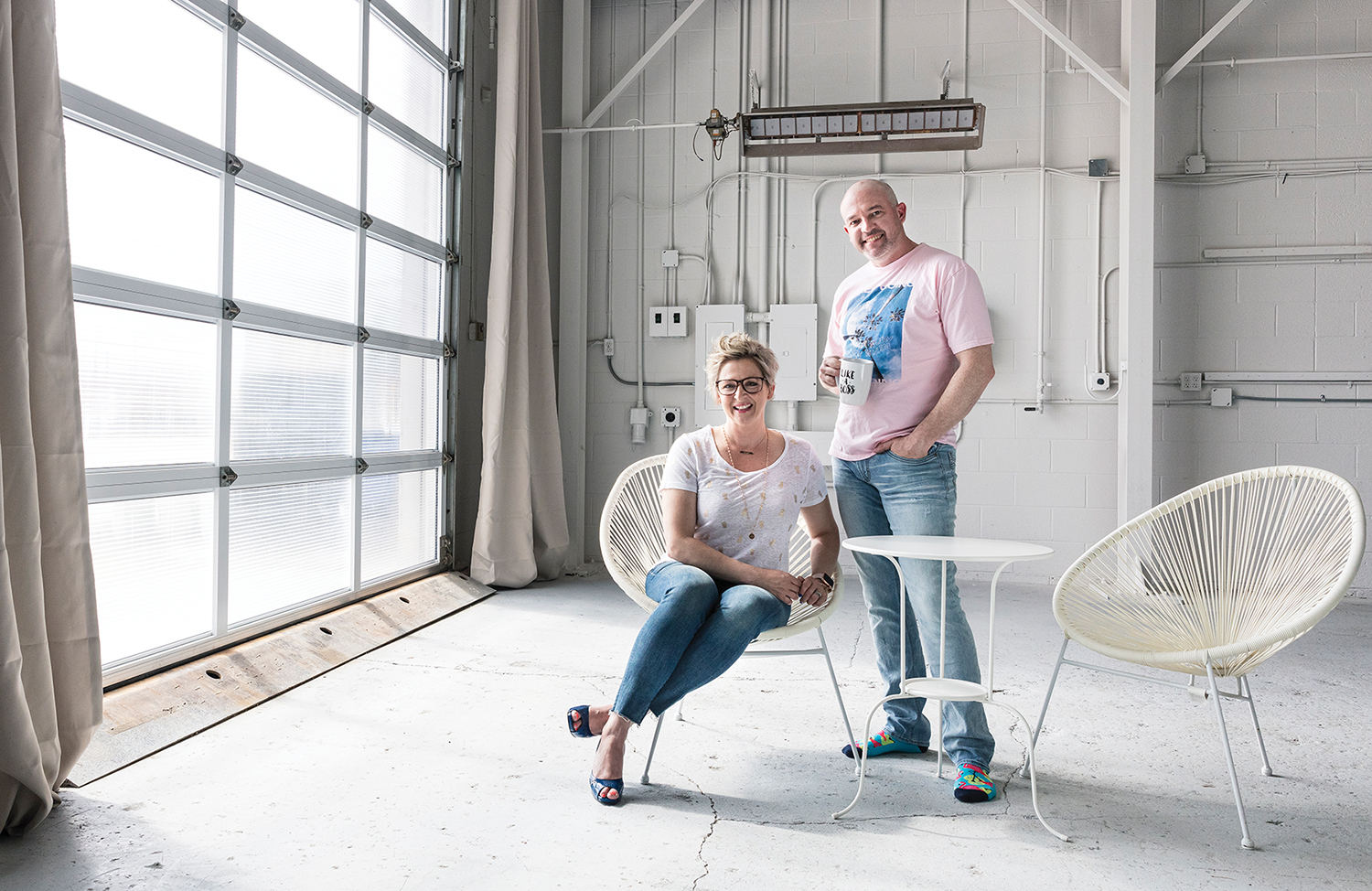The concept of “coworking” as we now know it was spurred by the rise of startups, the gig economy, and companies like WeWork, which offers individuals and small businesses flexible options for renting and sharing desk space, meeting rooms and other amenities. But Dez Melenka and camera operator Mike Tighe felt that the environment at CTV Edmonton, where they both worked for over a decade, was practically coworking before it was familiar.
“A newsroom is very much like coworking. You all work in a wide-open space, there are no offices, you bounce ideas off of everybody, you collaborate, and you’re off-site a lot,” Tighe says.
When they were out filming “On Your Street” segments, Melenka and Tighe got to see the effects of community coming together, sharing their expertise, and creating something good. “The segment really opened our eyes to what a community can do,” Tighe says. “Now we want to spread community and help people out and build people up.”
When the two of them were looking for spaces in which they could run their own production company, they found an unassuming mechanical warehouse in West Edmonton and were offered more space than they needed. Inspired by the sense of community they had developed and been inspired by at CTV, they decided to significantly renovate the space and turn it into The Creative Hive, a coworking space for creative professionals with amenities like a green screen, Instagrammable walls, a photography area and plenty of natural light. Likewise, when Tegan Martin-Drysdale, founder of RedBrick Real Estate Services, needed office space, she decided to take on more space than she actually needed so she could support and collaborate with other entrepreneurs. One of her real estate projects, the historic Alberta Block building on Jasper Avenue, now houses Homestead, a coworking environment with private offices, dedicated desks, a shared-but-bookable boardroom and meeting spaces, and plenty of tablespace for drop-in members who need to use the space irregularly. With 24/7 access, it suits the “gig economy” workforce that isn’t necessarily working within a 9-to-5 framework.
